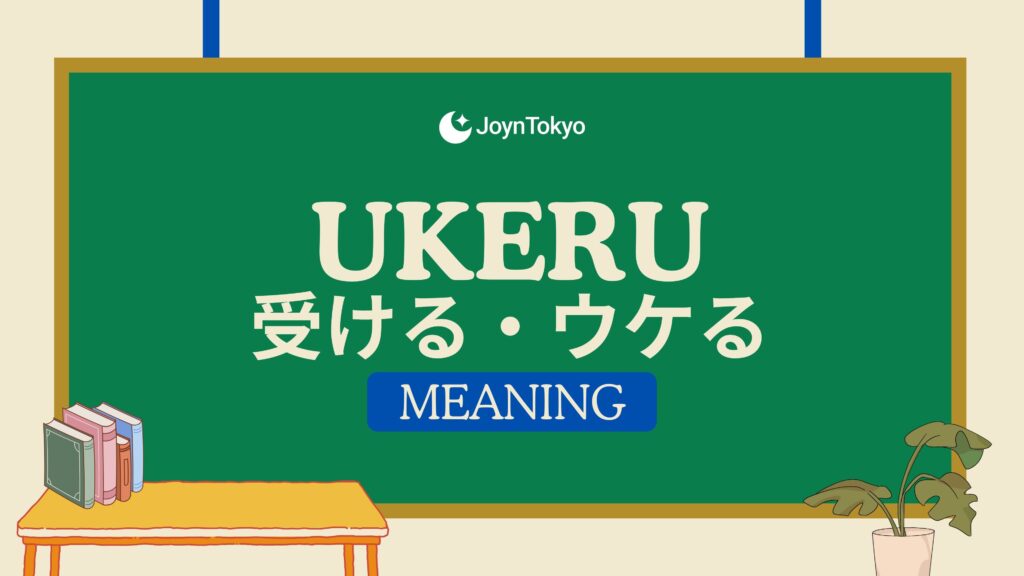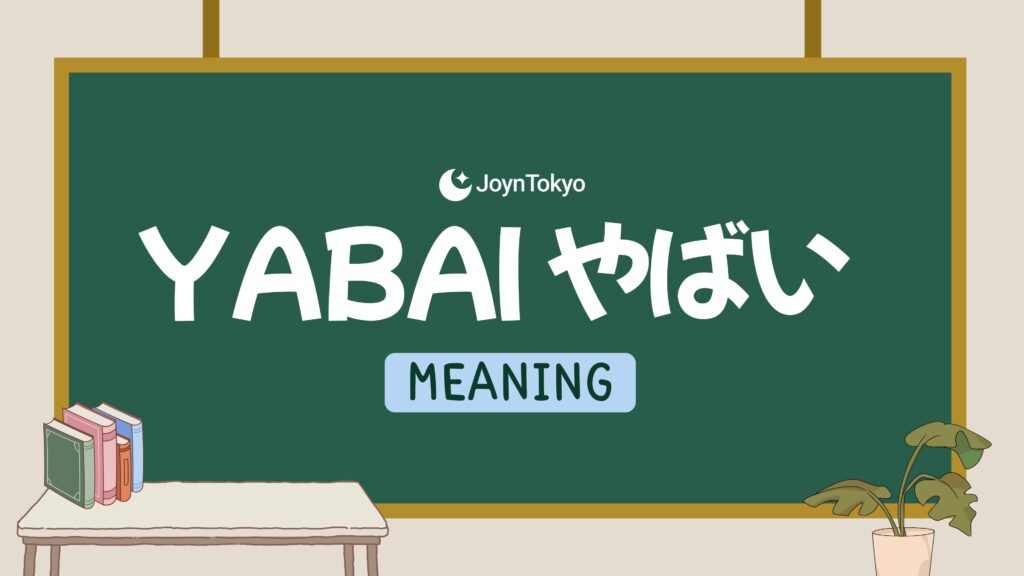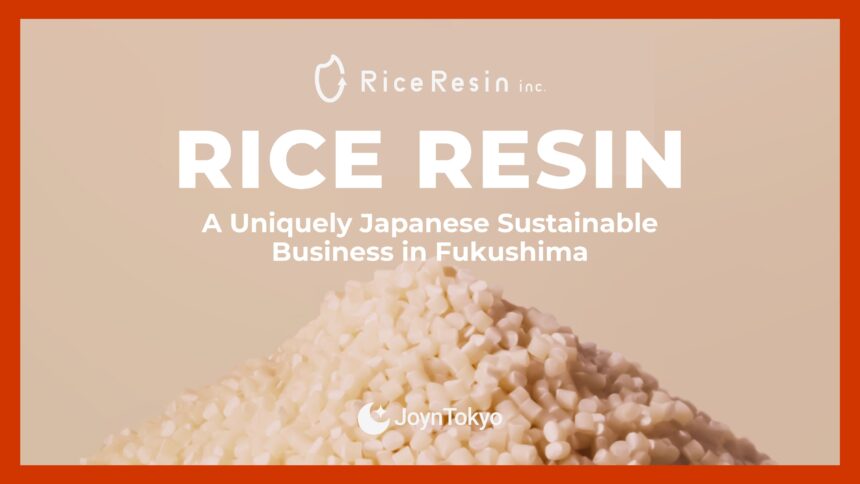If you’ve ever watched Japanese dramas, scrolled through anime clips, or overheard a group of teens chatting in Shibuya, you’ve probably caught the phrase maji de tossed around with a surprised tone. Maybe you even seen someone exclaim “Maji!?” with wide eyes. It’s one of those phrases that shows up everywhere, whether in laughter, shock, or even frustration.
But what does maji really mean? And why do people sometimes add de after it? Let’s break down the meaning, origin, and the subtle emotions behind one of Japan’s most expressive slang phrases.
The Meaning of Maji
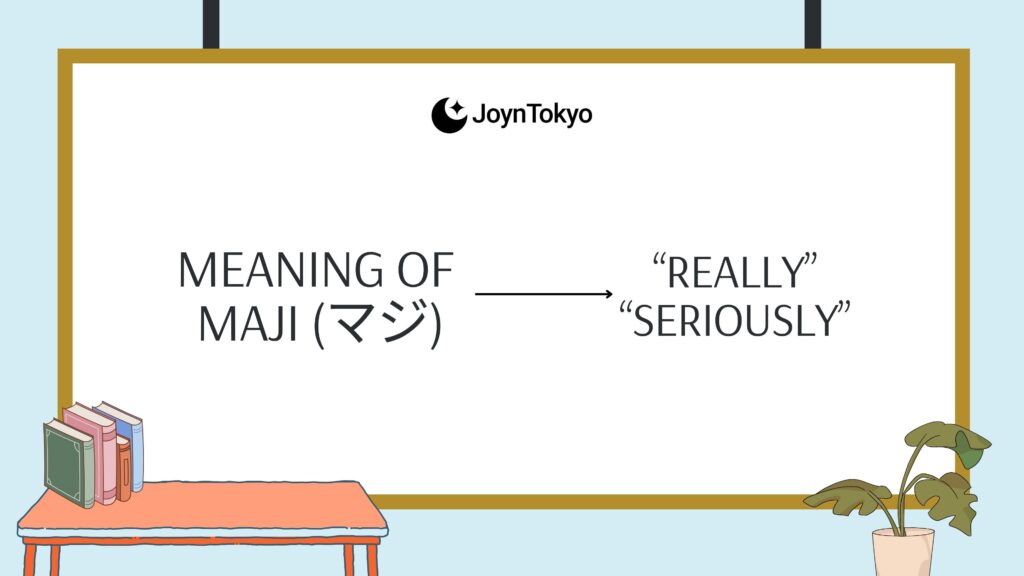
The word maji (マジ / 真面) comes from majime (真面目), which originally means “serious” or “earnest.” Over time, it evolved into a slang expression that means “really,” “seriously,” or “for real.”
You’ll hear it used to emphasize emotion, disbelief, or sincerity, much like saying “Seriously?” or “No way!” in English.
Depending on how it’s said, maji can take on many moods:
- Maji?!: “Really?!” (shock or disbelief)
- Maji da yo: “I’m serious.”
- Maji yabai!: “That’s crazy!” or “That’s amazing!”
It’s short, emotional, and totally dependent on tone.
What “Maji de” Means
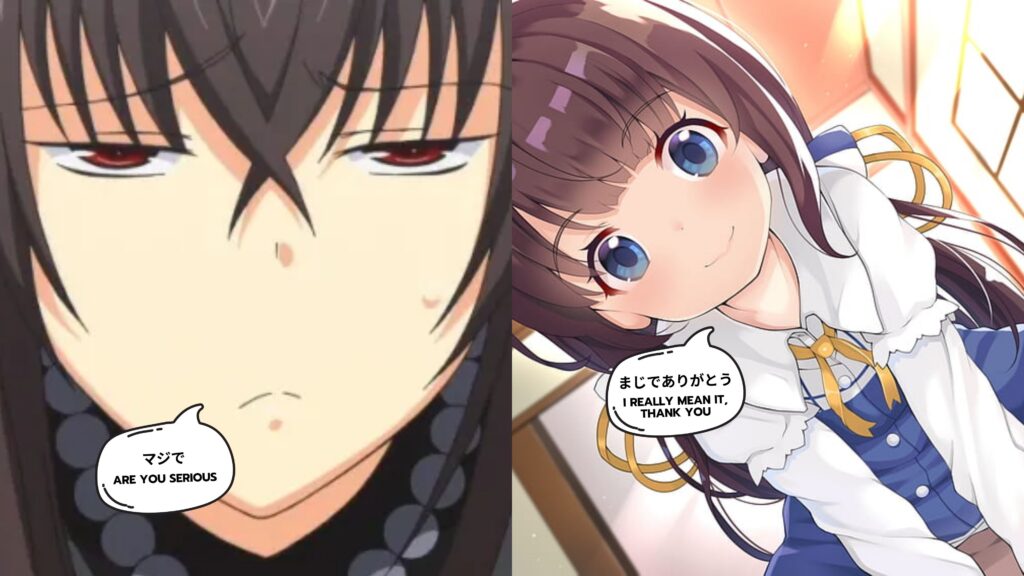
When you hear maji de (マジで), it literally adds the particle de (で), which roughly translates to “in a serious way” or “for real.” So maji de is like saying “seriously,” “for real,” or “no kidding.”
It’s one of the most common and natural ways to use maji in conversation.
Here are a few examples:
- Maji de?!: “Are you serious?!”
- Maji de, arigatou: “I really mean it, thank you.”
- Maji de muzukashii: “It’s seriously hard.”
- Maji de tsukareta: “I’m seriously tired.”
In many cases, maji de is interchangeable with hontou ni (本当に), but maji de sounds younger, lighter, and more emotional.
Maji vs. Maji de
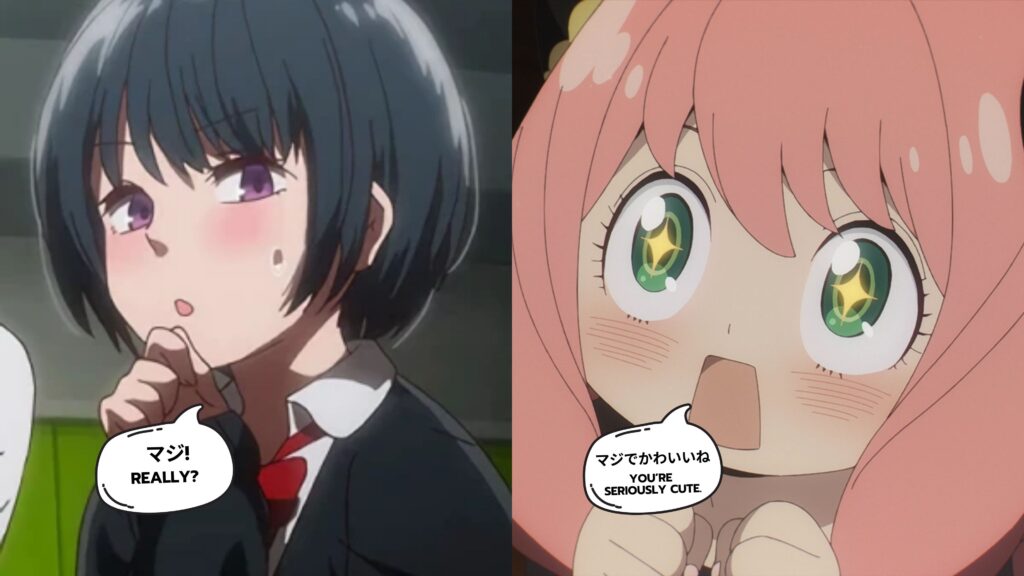
So what’s the difference between maji and maji de? It’s subtle, but it changes the tone.
- Maji stands on its own more as an exclamation. It’s raw emotion.
- Maji?! = “Really?!”
- Maji de fits more naturally into full sentences or longer expressions.
- Maji de kawaii ne. = “You’re seriously cute.”
Think of maji as the punchy reaction, and maji de as the phrase that gives structure or context.
Common Expressions Using Maji and Maji de
You’ll hear both versions in all kinds of everyday situations:
- Maji ka yo…: “You’ve got to be kidding me…”
- Maji yabai!: “That’s insane!” / “That’s awesome!”
- Maji de uso?!: “For real?!”
- Maji de saikou!: “That’s seriously awesome!”
Tone and emotion drive the meaning: say it flatly, and it sounds serious; shout it, and it becomes shock or excitement.
How Maji Differs from Hontou ni

Both maji and hontou ni mean “really,” but their feeling couldn’t be more different.
- Hontou ni is polite, neutral, and formal, making it perfect for business or respectful speech.
- Maji and maji de are casual, youthful, and expressive, and sound natural among friends.
For example:
- Hontou ni arigatou gozaimasu = “Thank you very much.” (polite)
- Maji de, arigatou! = “Seriously, thank you!” (friendly, emotional)
Using maji instead of hontou ni adds personality — it sounds like something you’d hear in a real conversation rather than a textbook.
Variations and Pop Culture Influence
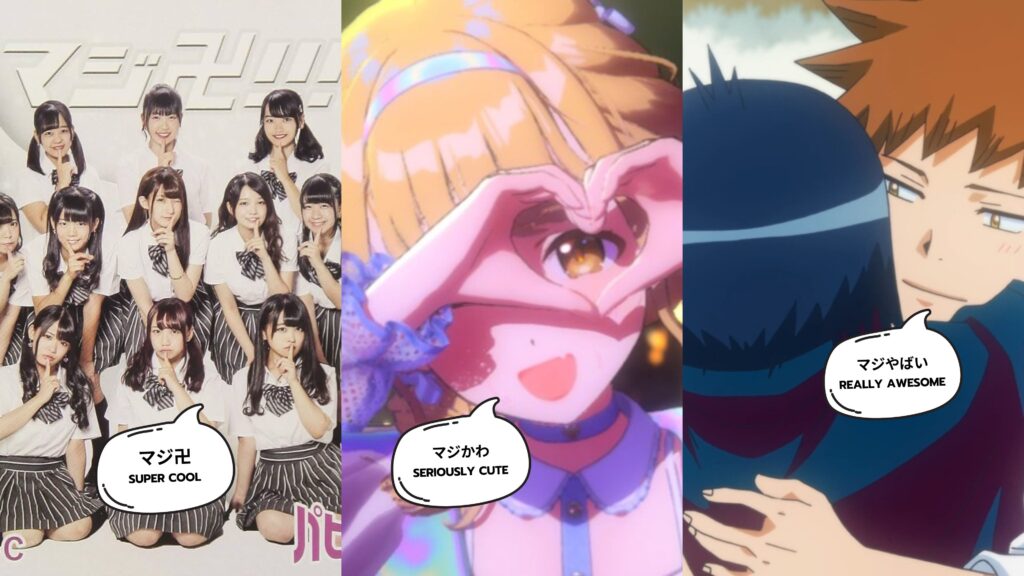
Over the years, maji has inspired different expressions and trends in Japanese youth slang. You might have heard:
- Maji manji!: A playful phrase popular with teens in the 2010s, meaning “super cool” or “totally wild.”
- Maji kawa: “Seriously cute.”
- Maji yabai: “Really awesome” or “unbelievable.”
You’ll hear these in anime, YouTube vlogs, and even idol interviews — it’s a word that adds flavor and emotion wherever it appears.
When to Use (and When to Avoid)
Maji and maji de are casual, friendly words. Perfect for chatting with friends, joking around, or expressing emotions, but not so great in formal or business settings.
If you’re talking to your boss, teacher, or client, stick with hontou ni instead.
So remember:
- Use maji and maji de with friends or in casual conversations.
- Avoid them in formal or professional situations.
Why Maji Feels So Uniquely Japanese
What makes maji and maji de fascinating is how much emotion they pack into just a few sounds. The same word can express excitement, disbelief, sincerity, or frustration, all through tone and context.
In a way, maji captures the rhythm and warmth of real Japanese speech. It’s simple, flexible, and alive with feeling.
So next time you hear someone say “Maji de!?” in an anime or on the streets of Tokyo, you’ll know that they’re not just saying “really.” They’re reacting with pure, human emotion. And that’s what makes maji such a perfect little word.


